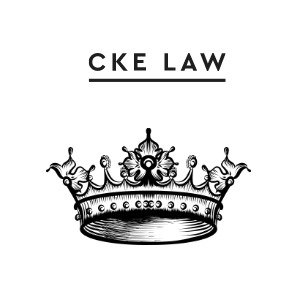Best Estate Planning Lawyers in Manchester
Share your needs with us, get contacted by law firms.
Free. Takes 2 min.
List of the best lawyers in Manchester, United Kingdom
About Estate Planning Law in Manchester, United Kingdom
Estate planning in Manchester, United Kingdom, involves making arrangements for the management and disposal of a person's estate in the event of incapacity or death. This process ensures that an individual's wishes regarding their assets are fulfilled and helps minimize taxes and legal complications. The need for estate planning is growing in Manchester due to the city's diverse population and dynamic property market. It typically encompasses wills, trusts, powers of attorney, and other legal documents that protect and distribute assets according to the individual's desires.
Why You May Need a Lawyer
There are several common situations where individuals may require legal assistance with estate planning:
- Creating a Will: A lawyer can help ensure that a will is legally sound, clearly outlines the distribution of assets, and adheres to your wishes.
- Establishing Trusts: Legal guidance can help in setting up trusts to manage assets effectively and possibly reduce tax liabilities.
- Tax Planning: Professional advice can help minimize inheritance taxes and make the most of any available reliefs or exemptions.
- Powers of Attorney: Lawyers provide assistance in establishing a lasting power of attorney to ensure that decisions regarding health and financial matters are managed by a trusted individual if you become incapacitated.
- Estate Disputes: Legal intervention might be necessary to resolve conflicts among beneficiaries or disputes over the interpretation of a will or trust.
Local Laws Overview
The estate planning process in Manchester is governed by several key legal frameworks:
- Wills Act 1837: Outlines the rules and requirements for creating a valid will in England and Wales.
- Inheritance Tax Act 1984: Imposes tax on the estate of deceased persons, subject to certain exemptions and reliefs like the nil-rate band.
- Trusts of Land and Appointment of Trustees Act 1996: Governs the management of trusts and appointment of trustees.
- Mental Capacity Act 2005: Provides guidelines and legal structures for creating a lasting power of attorney and dealing with individuals who lack mental capacity.
- Cohabitation and Civil Partnerships: Special considerations may apply for cohabitating couples and civil partners under the Civil Partnership Act 2004 and subsequent legislation.
Frequently Asked Questions
What happens if I die without a will in Manchester?
If you die without a will, your estate will be distributed according to the rules of intestacy, which may not align with your wishes. It is essential to create a will to ensure your assets are distributed as you intend.
How is inheritance tax calculated in the UK?
Inheritance tax is calculated based on the value of the deceased's estate. There is a tax-free threshold (nil-rate band) of £325,000 (as of the current tax year), above which estates are taxed at 40%. Various exemptions and reliefs may apply to reduce this tax burden.
Can I challenge a will?
Yes, under certain circumstances, you can challenge a will, such as lack of testamentary capacity, undue influence, or if the will was not executed properly. Legal advice is crucial for pursuing such claims.
What is a lasting power of attorney (LPA)?
An LPA is a legal document that allows you to appoint one or more individuals to make decisions on your behalf if you lose mental capacity. There are two types: health and welfare, and property and financial affairs.
Do I need a trust?
Trusts can be beneficial for managing assets, protecting family wealth, and mitigating tax liabilities. Consulting a lawyer can help determine if a trust is suitable for your situation and objectives.
Is an executor necessary?
Yes, an executor is essential as they are responsible for administering the estate, ensuring debts are paid, and distributing assets according to the will. You can name one or more executors in your will.
How often should I update my estate plan?
It's advisable to review and update your estate plan every few years or after significant life events such as marriage, divorce, birth of a child, or changes in financial circumstances.
What documents are involved in estate planning?
Key documents include wills, trusts, powers of attorney, advance decisions (living wills), and any other relevant legal agreements regarding the distribution and management of assets.
Can my estate plan be changed?
Yes, as long as you have the mental capacity, you can modify your estate plan at any time. It is recommended you consult with a lawyer to ensure changes are legally valid.
How can I choose the right lawyer for estate planning?
Look for a solicitor with experience and specialization in estate planning, check reviews and testimonials, ensure they are registered with the relevant professional bodies, and feel comfortable communicating your needs with them.
Additional Resources
- HM Revenue & Customs (HMRC): Provides detailed guidance on inheritance tax, reliefs, and exemptions.
- The Law Society: Helps locate specialized solicitors in estate planning and offers useful information.
- Citizens Advice Manchester: Offers valuable advice and resources for understanding the basics of estate planning.
- Office of the Public Guardian: Handles matters related to LPAs and issues concerning mental capacity.
Next Steps
If you're considering legal assistance for estate planning, it's important to act promptly and take the following steps:
1. Evaluate Your Needs: Consider your personal circumstances, assets, and what you wish to achieve with your estate plan.
2. Research Potential Lawyers: Look for a solicitor with relevant expertise and positive client feedback.
3. Schedule a Consultation: Arrange a meeting to discuss your requirements, understand the process, and obtain an estimate of costs.
4. Gather Necessary Information: Prepare and bring relevant documents, questions, and a list of desired outcomes to your consultation for a productive discussion.
5. Review and Finalize Your Plan: Work with your lawyer to draft or update your estate plan documents, ensuring they reflect your wishes accurately and are legally binding.
By taking these steps, you will be in a strong position to secure your legacy and ensure your wishes are carried out effectively. Estate planning is a critical task that provides peace of mind for both you and your loved ones.
Lawzana helps you find the best lawyers and law firms in Manchester through a curated and pre-screened list of qualified legal professionals. Our platform offers rankings and detailed profiles of attorneys and law firms, allowing you to compare based on practice areas, including Estate Planning, experience, and client feedback.
Each profile includes a description of the firm's areas of practice, client reviews, team members and partners, year of establishment, spoken languages, office locations, contact information, social media presence, and any published articles or resources. Most firms on our platform speak English and are experienced in both local and international legal matters.
Get a quote from top-rated law firms in Manchester, United Kingdom — quickly, securely, and without unnecessary hassle.
Disclaimer:
The information provided on this page is for general informational purposes only and does not constitute legal advice. While we strive to ensure the accuracy and relevance of the content, legal information may change over time, and interpretations of the law can vary. You should always consult with a qualified legal professional for advice specific to your situation.
We disclaim all liability for actions taken or not taken based on the content of this page. If you believe any information is incorrect or outdated, please contact us, and we will review and update it where appropriate.









